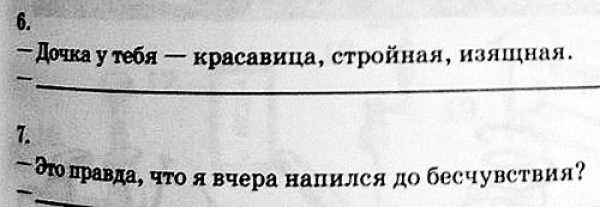The educational system in Kazakhstan is conducted in two languages - Kazakh and Russian and consists of several levels of state and private educational. The education system in kazakhstan is conducted
Education in Kazakhstan - топик на английском
The educational system in Kazakhstan is conducted in two languages - Kazakh and Russian and consists of several levels of state and private educational establishments: infant schools, elementary (or primary) schools, comprehensive schools, colleges and academies. The constitution of the Republic of Kazakhstan fixes the right of citizens of the republic on free-of-charge secondary education which is obligatory. The constitution prohibits any discrimination on the basis of language or ethnicity and guarantees equal rights in education regardless of nationality. Children start school at the age of 7 and finish at 17. As a rule a child attends the school, located in the neighborhood. However, in big cities there are so-called special schools, offering more in depth studies of the major European languages (English, French, German) or the advanced courses in physics and mathematics and children, attending one of this may have to commute from home.
The first stage of education in Kazakhstan is elementary (or primary) school for grades one through four. The second is secondary school for middle grades from five through nine. Upon graduation from secondary school students are given the choice of either continuing to attend the same school (high school -senior grades 10-11) or entering a vocational or technical school. Both of these schools are meant to provide one, along with the certificate of secondary education with a number of useful skills (e.g. those of an electrician, technical or computer operators.) Having completed one's secondary education, one can either become a part of work force or go on college (institution of higher learning-Institute).
To be admitted to the institute one has to pass a series of oral or written tests. Students may get free-of-charge higher education in the higher educational institution and the limited number of the state grants is given each academic year on a competitive basis. Some college departments (law, journalism, foreign language-especially English) have dozens of applicants for one prospective student's position. The system of higher education prepares highly - skilled experts on economy, transport, agriculture, medicine, languages and others. Today the young people of Kazakhstan have the opportunity to choose and acquire various types of education and build their lives according to their ambitions.
Studying of foreign languages and development of computer skills of pupils is of a special importance. More opportunities appear for the interested persons to be trained abroad on the basis of local and state grants, scholarships
www.native-english.ru
Topic "Education in Kazakhstan" with tasks
Education in Kazakhstan
The educational system in Kazakhstan is conducted in two languages - Kazakh and Russian and consists of several levels of state and private educational establishments: infant schools, elementary (or primary) schools, comprehensive schools, colleges and academies. The constitution of the Republic of Kazakhstan fixes the right of citizens of the republic on free-of-charge secondary education which is obligatory. The constitution prohibits any discrimination on the basis of language or ethnicity and guarantees equal rights in education regardless of nationality. Children start school at the age of 7 and finish at 17. As a rule a child attends the school, located in the neighborhood. However, in big cities there are so-called special schools, offering more in depth studies of the major European languages (English, French, German) or the advanced courses in physics and mathematics and children, attending one of this may have to commute from home.
The first stage of education in Kazakhstan is elementary (or primary) school for grades one through four. The second is secondary school for middle grades from five through nine. Upon graduation from secondary school students are given the choice of either continuing to attend the same school (high school -senior grades 10-11) or entering a vocational or technical school. Both of these schools are meant to provide one, along with the certificate of secondary education with a number of useful skills (e.g. those of an electrician, technical or computer operators.) Having completed one's secondary education, one can either become a part of work force or go on college (institution of higher learning-Institute).
To be admitted to the institute one has to pass a series of oral or written tests. Students may get free-of-charge higher education in the higher educational institution and the limited number of the state grants is given each academic year on a competitive basis. Some college departments (journalism, foreign language-especially English) have dozens of applicants for one prospective student's position. The system of higher education prepares highly - skilled experts on economy, transport, agriculture, languages and others.Studying of foreign languages and development of computer skills of pupils is of a special importance. More opportunities appear for the interested persons to be trained abroad on the basis of local and state grants, scholarships.
True or false
The education in conducted in Kazakh language. F
The secondary education is free of charge. T
Usually children attend school that is far from home. F
Primary schools for grades one through three F
To be admitted to the institute one has to pass only oral exams. F
Studying of foreign languages is of a special importance. T
Questions
In what languages the education in conducted in Kazakhstan?
What are the levels of educational establishments?
(образовательное учреждение)
When do children usually start school?
What can you say about special schools?
Translate
Educational system-образовательная система
Level-уровень
Private- частный
Infant schools- дошкольное образование
Equal rights-равные права
Secondary education-среднее образование
Vocational or technical school-профтехобразование
videouroki.net
The educational system in Kazakhstan is conducted in two ... -reshimne.ru
Система образования в Казахстане осуществляется на двух языках-казахском и русском и состоит из нескольких уровней в государственных образовательных учреждениях: детские сады, начальные школы, средние школы и высшие учебные заведения.Дети начинают обучение в возрасте шести-семи лет и заканчивают в возрасте семнадцати лет. Как правило, правило, ребенок посещает школу, расположенную по соседствую. Первый уровень образования в Казахстане - это начальная школа с первого по четвертый класс. Второй уровень - это средняя школа для школьников среднего возраста, с 5 класса по 9 класс. После окончания девятилетней средней школы, у студентов есть выбор: либо продолжать посещать ту же школу (старшие классы 10-11) или приступить к обучению в профессиональных лицеях, профессионально-технических училищах или колледжах, которые дают целый ряд полезных навыков. Для зачисления в университет надо пройти ряд устных или письменных тестов. Система высшего образования готовит высококвалифицированных специалистов по экономике, на транспорте, в сельском хозяйстве, медицине, в сфере языкового образования и др.Сегодня молодежь Казахстана имеют возможность выбирать и получать различные виды образования и строить свою жизнь в соответствии со своими амбициями. Изучение иностранных языков и развитие компьютерных навыков учеников имеет особое значение. в Республике Казахстан продолжаются образовательные мероприятия.
reshimne.ru
Education in Kazakhstan | Топики по английскому языку
The educational system in Kazakhstan is conducted in two languages – Kazakh and Russian and consists of several levels of state and private educational establishments: infant schools, elementary (or primary) schools, comprehensive schools, colleges and academies. The constitution of the Republic of Kazakhstan fixes the right of citizens of the republic on free-of-charge secondary education which is obligatory. The constitution prohibits any discrimination on the basis of language or ethnicity and guarantees equal rights in education regardless of nationality. Children start school at the age of 7 and finish at 17. As a rule a child attends the school, located in the neighborhood. However, in big cities there are so-called special schools, offering more in depth studies of the major European languages (English, French, German) or the advanced courses in physics and mathematics and children, attending one of this may have to commute from home.
The first stage of education in Kazakhstan is elementary (or primary) school for grades one through four. The second is secondary school for middle grades from five through nine. Upon graduation from secondary school students are given the choice of either continuing to attend the same school (high school – senior grades 10-11) or entering a vocational or technical school. Both of these schools are meant to provide one, along with the certificate of secondary education with a number of useful skills (e. g. those of an electrician, technical or computer operators.) Having completed one’s secondary education, one can either become a part of work force or go on college (institution of higher learning-Institute).
To be admitted to the institute one has to pass a series of oral or written tests. Students may get free-of-charge higher education in the higher educational institution and the limited number of the state grants is given each academic year on a competitive basis. Some college departments (law, journalism, foreign language-especially English) have dozens of applicants for one prospective student’s position. The system of higher education prepares highly – skilled experts on economy, transport, agriculture, medicine, languages and others. Today the young people of Kazakhstan have the opportunity to choose and acquire various types of education and build their lives according to their ambitions.
Studying of foreign languages and development of computer skills of pupils is of a special importance. More opportunities appear for the interested persons to be trained abroad on the basis of local and state grants, scholarships
.
englishtopic.ru
The educational system in Kazakhstan is conducted in two languages
5-9 класс
establishments: infant schools, elementary (or primary) schools, comprehensive schools, colleges and academies. The constitution of the Republic of Kazakhstan fixes the right of citizens of the republic on free-of-charge secondary education which is obligatory. The constitution prohibits any discrimination on the basis of language or ethnicity and guarantees equal rights in education regardless of nationality. Children start school at the age of 7 and finish at 17. As a rule a child attends the school, located in the neighborhood. However, in big cities there are so-called special schools, offering more in depth studies of the major European languages (English, French, German) or the advanced courses in physics and mathematics and children, attending one of this may have to commute from home.
The first stage of education in Kazakhstan is elementary (or primary) school for grades one through four. The second is secondary school for middle grades from five through nine. Upon graduation from secondary school students are given the choice of either continuing to attend the same school (high school -senior grades 10-11) or entering a vocational or technical school. Both of these schools are meant to provide one, along with the certificate of secondary education with a number of useful skills (e.g. those of an electrician, technical or computer operators.) Having completed one's secondary education, one can either become a part of work force or go on college (institution of higher learning-Institute). АУДАРмасы
Dashulenkaaaa 30 янв. 2017 г., 4:11:40 (год назад) бревнышко30 янв. 2017 г., 6:43:31 (год назад)
Перевести
Ответить
Другие вопросы из категории
The educational system in Kazakhstan is conducted in two languages
5-9 класс
establishments: infant schools, elementary (or primary) schools, comprehensive schools, colleges and academies. The constitution of the Republic of Kazakhstan fixes the right of citizens of the republic on free-of-charge secondary education which is obligatory. The constitution prohibits any discrimination on the basis of language or ethnicity and guarantees equal rights in education regardless of nationality. Children start school at the age of 7 and finish at 17. As a rule a child attends the school, located in the neighborhood. However, in big cities there are so-called special schools, offering more in depth studies of the major European languages (English, French, German) or the advanced courses in physics and mathematics and children, attending one of this may have to commute from home.
The first stage of education in Kazakhstan is elementary (or primary) school for grades one through four. The second is secondary school for middle grades from five through nine. Upon graduation from secondary school students are given the choice of either continuing to attend the same school (high school -senior grades 10-11) or entering a vocational or technical school. Both of these schools are meant to provide one, along with the certificate of secondary education with a number of useful skills (e.g. those of an electrician, technical or computer operators.) Having completed one's secondary education, one can either become a part of work force or go on college (institution of higher learning-Institute). АУДАРмасы
Dashulenkaaaa 30 янв. 2017 г., 4:11:40 (год назад) бревнышко30 янв. 2017 г., 6:43:31 (год назад)
Перевести
Ответить
Другие вопросы из
matematika.neznaka.ru
The educational system in Kazakhstan is conducted in two languages
5-9 класс
establishments: infant schools, elementary (or primary) schools, comprehensive schools, colleges and academies. The constitution of the Republic of Kazakhstan fixes the right of citizens of the republic on free-of-charge secondary education which is obligatory. The constitution prohibits any discrimination on the basis of language or ethnicity and guarantees equal rights in education regardless of nationality. Children start school at the age of 7 and finish at 17. As a rule a child attends the school, located in the neighborhood. However, in big cities there are so-called special schools, offering more in depth studies of the major European languages (English, French, German) or the advanced courses in physics and mathematics and children, attending one of this may have to commute from home.
The first stage of education in Kazakhstan is elementary (or primary) school for grades one through four. The second is secondary school for middle grades from five through nine. Upon graduation from secondary school students are given the choice of either continuing to attend the same school (high school -senior grades 10-11) or entering a vocational or technical school. Both of these schools are meant to provide one, along with the certificate of secondary education with a number of useful skills (e.g. those of an electrician, technical or computer operators.) Having completed one's secondary education, one can either become a part of work force or go on college (institution of higher learning-Institute). АУДАРмасы
Dashulenkaaaa 30 янв. 2017 г., 4:11:40 (год назад) бревнышко30 янв. 2017 г., 6:43:31 (год назад)
Перевести
Ответить
Другие вопросы из
ukrainska-literatura.neznaka.ru



